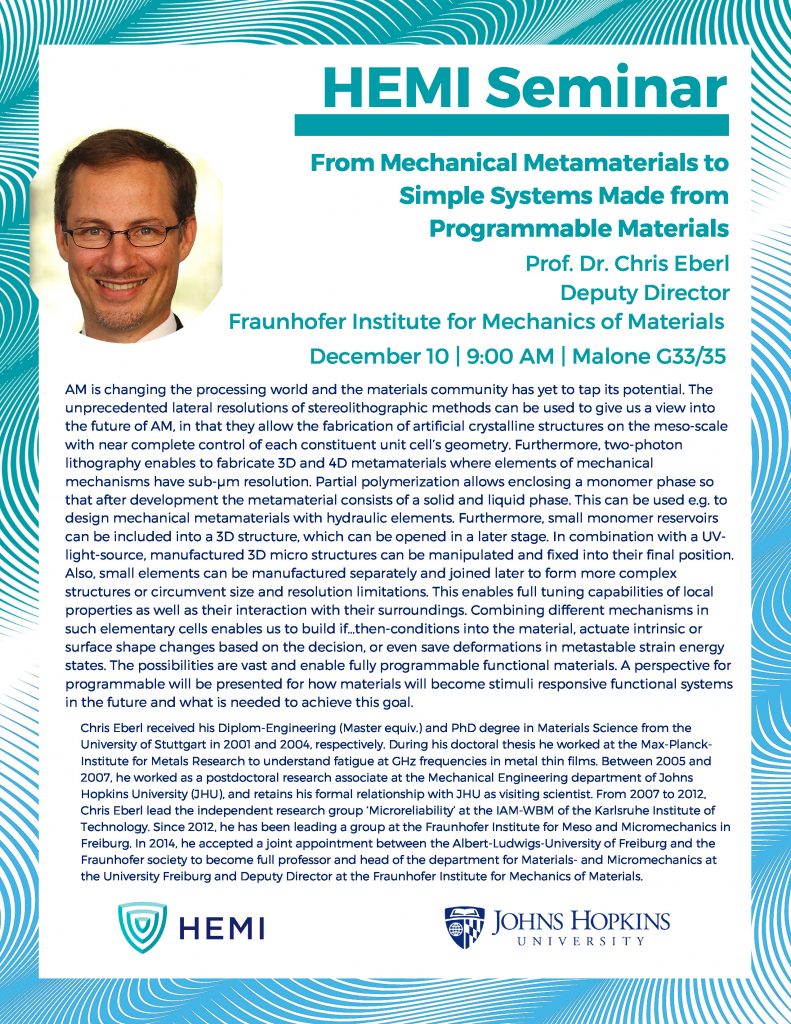December 10, 2018 @ 9:00 am - 10:00 am
Event Navigation
From Mechanical Metamaterials to Simple Systems Made from Programmable Materials
AM is changing the processing world and the materials community has yet to tap its potential. The unprecedented lateral resolutions of stereolithographic methods can be used to give us a view into the future of AM, in that they allow the fabrication of artificial crystalline structures on the meso-scale with near complete control of each constituent unit cell’s geometry. Furthermore, two-photon lithography enables to fabricate 3D and 4D metamaterials where elements of mechanical mechanisms have sub-µm resolution. Partial polymerization allows enclosing a monomer phase so that after development the metamaterial consists of a solid and liquid phase. This can be used e.g. to design mechanical metamaterials with hydraulic elements. Furthermore, small monomer reservoirs can be included into a 3D structure, which can be opened in a later stage. In combination with a UV-light-source, manufactured 3D micro structures can be manipulated and fixed into their final position. Also, small elements can be manufactured separately and joined later to form more complex structures or circumvent size and resolution limitations. This enables full tuning capabilities of local properties as well as their interaction with their surroundings. Combining different mechanisms in such elementary cells enables us to build if…then-conditions into the material, actuate intrinsic or surface shape changes based on the decision, or even save deformations in metastable strain energy states. The possibilities are vast and enable fully programmable functional materials. A perspective for programmable will be presented for how materials will become stimuli responsive functional systems in the future and what is needed to achieve this goal.
Chris Eberl received his Diplom-Engineering (Master equiv.) and PhD degree in Materials Science from the University of Stuttgart in 2001 and 2004, respectively. During his doctoral thesis he worked at the Max-Planck-Institute for Metals Research to understand fatigue at GHz frequencies in metal thin films. Between 2005 and 2007, he worked as a postdoctoral research associate at the Mechanical Engineering department of Johns Hopkins University (JHU), and retains his formal relationship with JHU as visiting scientist. From 2007 to 2012, Chris Eberl lead the independent research group ‘Microreliability’ at the IAM-WBM of the Karlsruhe Institute of Technology. Since 2012, he has been leading a group at the Fraunhofer Institute for Meso and Micromechanics in Freiburg. In 2014, he accepted a joint appointment between the Albert-Ludwigs-University of Freiburg and the Fraunhofer society to become full professor and head of the department for Materials- and Micromechanics at the University Freiburg and Deputy Director at the Fraunhofer Institute for Mechanics of Materials.





